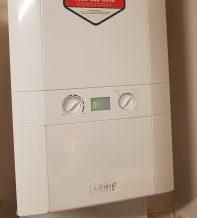Five Points to Consider When Installing a New Boiler
Your boiler is one of the most relied upon appliances you have in your home, expected to not only provide warmth but often hot water all year round.
It is also one of the most expensive, costing far more to replace than a typical fridge, oven or washing machine. It must be installed by qualified engineers and there are different types of boilers to consider. There are even rules and regulations you must adhere to from the UK Government when it comes to new installations and energy ratings.
With so much to consider when installing a new boiler, we have selected five key points to address if you are closing in on a new boiler installation.
Do I Need a New Boiler?
There are a number of factors which could lead to you needing a new boiler. The first is obviously a fault on your existing installation, something that may necessitate a change. Your current boiler may be coming to the end of its useful life, usually around 15 years, according to the Daily Express. There are other mitigating circumstances too, which we explain further in our article Five Reasons You Will Need a New Boiler.
What Type of Boiler Should I Get?
Much will depend on whether your needs have changed or not. If you are simply looking to take out one boiler and put a newer, more efficient one in, then the answer here is just ‘the same as before’. However, if your circumstances have changed, you may need a different type of boiler. For instance, a combi boiler will deliver warm water on-demand, but may not stretch to the needs of a larger family or house of multiple occupancy. A system boiler heats more warm water, but it takes up much more space by needing a large hot water cylinder. The type of boiler you need relies heavily on your water and heating requirements.
How Much Will It Cost?
This depends entirely on your circumstances. If you are simply swapping one boiler for another in the same location, costs will be minimal. However, there is no ‘one size fits all’ approach here. If you are taking out one type of boiler and replacing it with another, costs increase. If you are relocating the boiler, you will need additional pipework and again, costs go up. Typically, it costs between £1,600 to £3,500 to purchase and install a combi boiler, and £1,500 to £2,800 for a system boiler. These are rough guides though and are subject to rise if more work needs carrying out in terms of relocation etc.
How Long Will an Installation Take?
Whilst again dependent on the type of boiler you have chosen, the installation time does not vary quite as much as cost. Typically, a boiler change should take between a day and three days. If you are replacing like for like in the same location, a qualified engineer should be able to do it in a day. Alterations to the system could extend that to three days, no more. If you are fitting a more unique boiler, something like a biomass boiler, then it may run for a week.
What Happens Afterwards?
With any expensive installation, it is wise to consider the time after the work has been carried out. Assuming you have just spent £2,000 on a new boiler, could you risk it breaking down? Many may come with a warranty of a year, maybe even a little longer, but that would not cover pipework and other changes made to the system. As you can see by looking at the gas and boiler cover on HomeServe, specific cover for the boiler and plumbing system is relatively low cost but can offer peace of mind following any major works carried out at your home. This is also a good idea if you choose not to fit a new boiler, but have some ongoing reservations about your current installation.
Conclusion
A new boiler can cost as much, or as little, as you like. If you go for a basic change, then do not expect to outlay more than £1,500. However, if you do need a change of type, location or indeed fuel source, then expect costs to go up and fitting time to increase.
